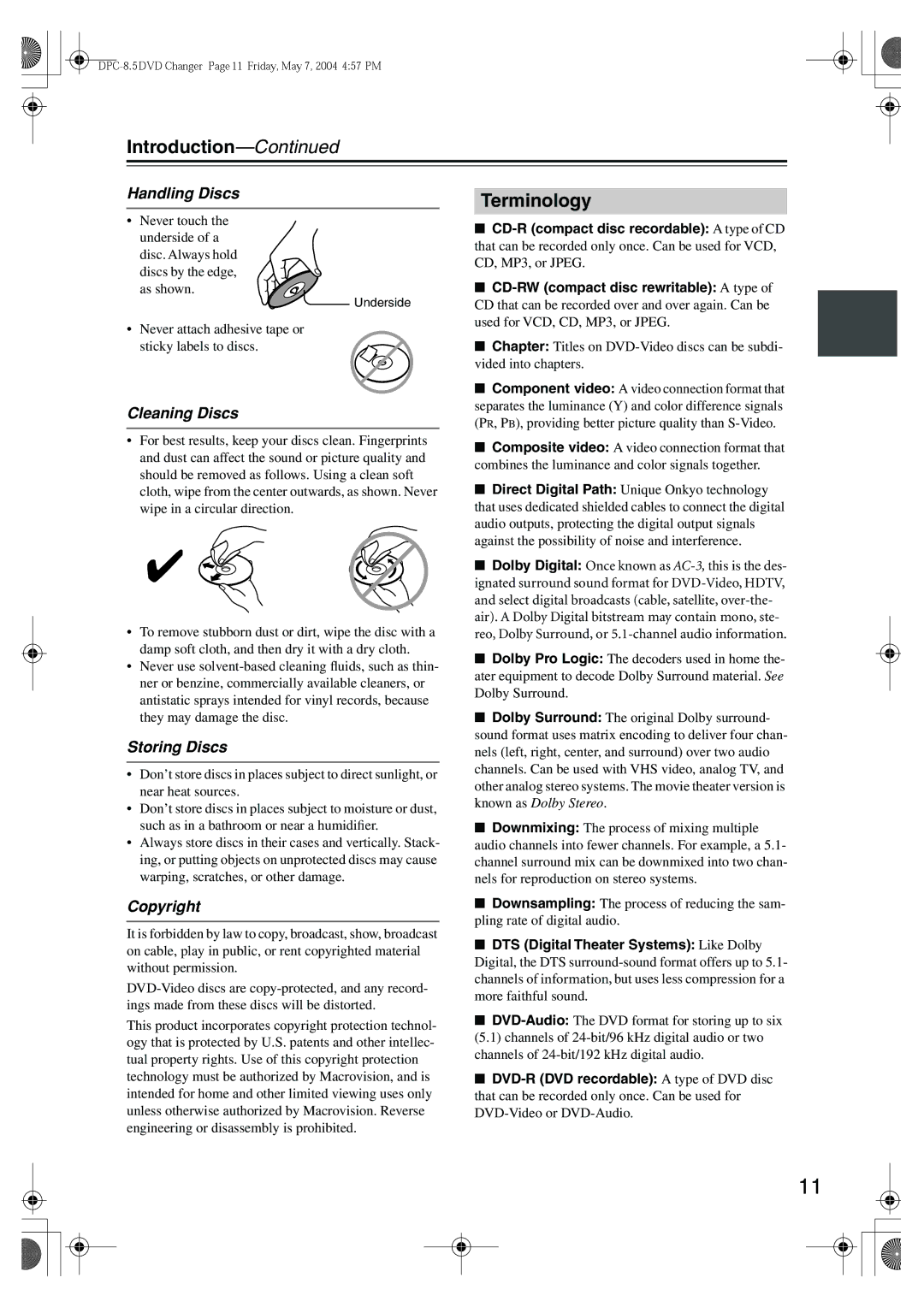
|
|
| |
|
|
| |
Handling Discs |
|
| |
| Terminology | ||
|
| ||
• Never touch the |
|
| |
■ | |||
underside of a | |||
that can be recorded only once. Can be used for VCD, | |||
disc. Always hold | |||
CD, MP3, or JPEG. | |||
discs by the edge, | |||
■ | |||
as shown. | |||
Underside | CD that can be recorded over and over again. Can be | ||
• Never attach adhesive tape or | used for VCD, CD, MP3, or JPEG. | ||
|
| ||
sticky labels to discs. | ■ Chapter: Titles on | ||
| vided into chapters. | ||
■ Component video: A video connection format that
Cleaning Discsseparates the luminance (Y) and color difference signals (PR, PB), providing better picture quality than
•For best results, keep your discs clean. Fingerprints and dust can affect the sound or picture quality and should be removed as follows. Using a clean soft cloth, wipe from the center outwards, as shown. Never wipe in a circular direction.
✔

•To remove stubborn dust or dirt, wipe the disc with a damp soft cloth, and then dry it with a dry cloth.
•Never use
Storing Discs
•Don’t store discs in places subject to direct sunlight, or near heat sources.
•Don’t store discs in places subject to moisture or dust, such as in a bathroom or near a humidifier.
•Always store discs in their cases and vertically. Stack- ing, or putting objects on unprotected discs may cause warping, scratches, or other damage.
Copyright
It is forbidden by law to copy, broadcast, show, broadcast on cable, play in public, or rent copyrighted material without permission.
This product incorporates copyright protection technol- ogy that is protected by U.S. patents and other intellec- tual property rights. Use of this copyright protection technology must be authorized by Macrovision, and is intended for home and other limited viewing uses only unless otherwise authorized by Macrovision. Reverse engineering or disassembly is prohibited.
■Composite video: A video connection format that combines the luminance and color signals together.
■Direct Digital Path: Unique Onkyo technology that uses dedicated shielded cables to connect the digital audio outputs, protecting the digital output signals against the possibility of noise and interference.
■Dolby Digital: Once known as
■Dolby Pro Logic: The decoders used in home the- ater equipment to decode Dolby Surround material. See Dolby Surround.
■Dolby Surround: The original Dolby surround-
sound format uses matrix encoding to deliver four chan- nels (left, right, center, and surround) over two audio channels. Can be used with VHS video, analog TV, and other analog stereo systems. The movie theater version is known as Dolby Stereo.
■Downmixing: The process of mixing multiple audio channels into fewer channels. For example, a 5.1- channel surround mix can be downmixed into two chan- nels for reproduction on stereo systems.
■Downsampling: The process of reducing the sam- pling rate of digital audio.
■DTS (Digital Theater Systems): Like Dolby Digital, the DTS
■
■
11
